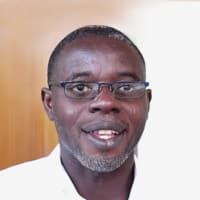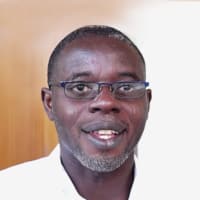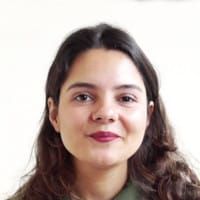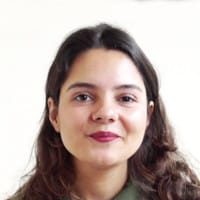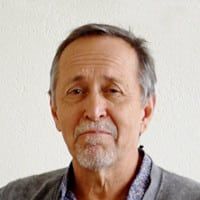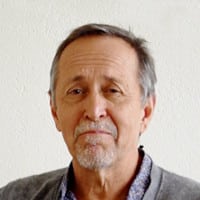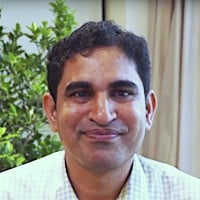Read the transcript of Francois Bourguignon's Video here ◂
Francois B.: I am Francois Bourguignon, and I am an Emeritus Professor of Economics at the Paris School of Economics.
Nerina Finetto: Thank you so much for joining me. You are one of the keynote speakers here at the conference. What is the key message of your presentation?
Francois B.: So, presentation was really about inequality today or in the recent past in the world, other role, and in some countries, and about what to expect for the future. My view is that when we look at the past, we have gone through a very favorable period where global inequality has gone down practically because the European countries have been able to grow faster than advanced economies. This being true not only of those big emerging countries like China, like India, but also in the 2000s in the case of Sub-Saharan Africa and Latin America.
In countries the evolution is really very [inaudible 00:01:44], but except for a few countries like the United States, we don’t observe rising trend of inequality of a very long period. Where there has been an increase in inequality tended to stabilize after a while. So this is for the past, and I would say that if we were to stop the world in 2015, we could say that despite the crisis 2008, things are more or less favorable.
But now if you look at the future, I was expressing some possibilities about the future for two reasons. The first reason is that I believe that the region of the world where we find most poor people today which is Sub-Saharan Africa, is also a region where the demography growth is extremely quick. This is a region where the population grows at a rate of 3% a year. We know that within the next 30 years, there will be one billion more African people, and basically have doubts about the engine of growth of those economies. I believe that they rely almost essentially on the export of commodities at least the bulk of them, not every of them but the bulk of them, and because of that they cannot grow much faster than the growth rate of the whole world.
And because the rate of growth of the population is very high, this mean that per capita they will not grow very fast. 1% on average over the long run would be more or less the [inaudible 00:03:37] magnitude. But this is less than the long run growth rate in developed countries. This is much less than the growth rate in emerging countries, which mean that the poorest part of the world will lag behind the rest of the world, which will contribute to an increase in inequality.
So the favorable evolution of the global income distribution or welfare distribution that we are observing in the last 15 or 20 years, from my point of view might not continue because of this Sub-Saharan factor.
And my second reason why I am a bit pessimistic on the future is that I believe that we are already engaged in this technical revolution which is automation, which is artificial intelligence, which has already shocked the labor market. We observe, for example, that in many countries there is polarization of the labor market with more people with high salaries, and more people with low salaries, and less people at the middle. This will continue. The technical revolution will have an impact on the labor market. It will also have an impact on the overall distribution of income because the surplus generated by this technical change will go mostly to the owners of the new machines, the robots, or the owners of the algorithm that will be responsible for artificial intelligence.
So because of that, I have a feeling that in the future we are about to witness a big increases in inequality during all the transition period where we will be filling the directing path to the technical revolution, but it will take time before the profit that this revolution will bring in terms of higher productivity for people before this is being recycled in the economy, and everybody can benefit from it, it will take a long time.
So transition period may be very difficult period, and we should try to prepare to address the issues that will arise during that period, the issues being how do we limit the increase in inequality? What do we do to provide employment to people who have lost their employment, and this will be the really difficult issues.
Nerina Finetto: Has poverty declined around the world?
Francois B.: There is no doubt about the fact that poverty has regressed, has diminished in the world, and it has diminished in two ways. It has diminished in terms of the proportion of people below some poverty limit, poverty line. Thee are various poverty lines, but whatever the poverty line you look at it is true that there are less, the proportion of people below the poverty line is smaller. But this has been going on for quite some time, but for sometimes the proportion was going down but because the population is increasing, the number of poor was increasing.
This is a big difference over the last 15 or 20 years in particular in Sub-Saharan Africa, which is a fact that economy progress has been able to dominate demographic growth. My answer to you question is no, there is less poor people today in the world than it was the case before.
Nerina Finetto: Why should we care about inequality if poverty is on the decline and quality of life improves?
Francois B.: I think that your question is maybe rephrased in a different way. Some people felt, “Why are you interested by inequality? As long as there is loess poor people, shouldn’t we be happy with that?” This is a good argument. But if we believe or if we have the proof that because there is more inequality because of very rich people are getting higher share of the total income, because of that they are slowing down the progress of the poor people, then we are interested in inequality because okay, it is good that the number of poor people goes down, but it could go much faster down if we are able to bring back part of the income of the very rich to the poor people.
So this is really the big issue behind inequality, but it is not clear that it is so easy. You cannot tell people, “Okay, I will take something from you and I will give it to the poor people.” If you want to do that, you have to introduce taxes. But if you are introducing taxes and if your tax is too high, then the rich people in the country will say, “No, here the taxes are too high. I’m leaving. I’m going somewhere else.”
Even when they say, “Okay, I will give that back to the poor people,” then poor people will say, “Okay, fine, I mean I have all that money coming, so it is not necessary for me to do too much work because I am happy with the money that I’m given.”
So, my point here is to say that we cannot believe that redistributing and taking one dollar or one peso or one CFA franc from rich people and giving back to the poor people will always do the trick. We are losing money in the process. When you take one dollar from the top, when we get to the bottom, we don’t have a dollar, so there is a leakage in the system due to the fact that the economy efficiency or the efficacy of the economy system is being affected by this kind of distribution.
Nerina Finetto: You have written also a book about inequality and globalization, right?
Francois B.: Difficult, but the book was entitled The Globalization of Inequality. It was really about the fact that inequality was becoming a global issue. For a long time people would say, “Okay, we don’t care about global inequality.” Inequality that matters is inequality that does exist in one country. The people in Chad will not be considering people in Niger, they are neighbor. This is another population they don’t care. But because of the world has become more and more integrated, this is not true anymore. People have the TVs, they can watch the TVs. They look at the way in which people in the rest of the world can live. They look at the TV series coming from the United States or coming from other countries, and they say, “How come I am so low in terms of purchasing power when I am comparing myself to those people?”
And in the other camp, to some extent, people in rich countries say, “How come those people living in Mali or living in Tanzania are so poor? There is something wrong in that.” So from that point of view, inequality is or has become a global issue. We would like to make sure that over time poor people become relatively less poor with respect to the others. And this is a reason why inequality has become a global issue, but at the same time the book was also about what is the impact of globalization on inequality.
Nerina Finetto: And what is the impact of globalization on inequality?
Francois B.: We could think that the impact on developed countries, the issue basically of globalization is really about the relationship between Asia and the West, basically because the big thing about globalization has been the surge of Chinese manufacturing in the world, and the fact that a lot of manufacturing industry has left the advanced economies to go to China. Because of that, jobs are lost. Some small cities in the U.S., in Europe, were basically de-industrialized, so a lot of local problems and some workers basically lost their job. All the wages went down.
So, globalization without any doubt had an impact on the labor market in formerly industrialized countries. And of course, it was a very good thing for the Chinese, and it was a very good thing for all the people working with the Chinese, with the Vietnamese, with all this part of the world did very well. And in terms of world inequality, world inequality was reduced because of that.
But, what is the problem of that is the fact that in advanced economies, some resentment appeared against this globalization which was really reducing the [inaudible 00:13:51] feeling of some people. It is a very difficult issue because workers or some workers who are affected by this competition coming from Asia, but at the same time those goods are produced in Asia were much cheaper. So, many people could buy goods at a much cheaper price which they could not buy before.
So in those advanced countries, you had a kind of dilemma between workers who were unhappy and consumers who were happy. Some cases some people are both consumers and workers, but this was a very, very difficult issue.
: But today what we observe is together with technical change, the impact of globalization, practical change in advanced economies, has been rather bad for many people, in particular people who are living in metropolitan areas, who are not living in the most dynamic part of those countries.
What we see today with, and this was something I talked about this morning and something I talked about in that book, I said because of that we will see that there will be a pressure on the political system which will come from those people who are deeply unsatisfied, and who are against the system because they consider that the establishment, which has permitted globalization, which has encouraged globalization, has been going against them, and something will happen.
I was predicting something like the Trump election except for the fact that I saw that it would not be Trump in terms of the American election, I saw that it would be Sanders. So from that point of view, I was wrong, but I was right in the sense that yes, something has happened politically. This is also in somewhere in Italy, this is somewhere in the Brexit, there is something of this type. We have the same type of mechanism, which is behind the scene. Because of that, I think that we are living in difficult times.
Nerina Finetto: We are facing some challenges here in the developing countries, but at the same time people are accusing us of contributing to the inequality, for example, by paying very little for raw materials coming from Africa. What is your opinion?
Francois B.: Okay, that’s very difficult to say because when you look at the last cycle in terms of commodity prices, it was not so much due to Western countries and advanced economies. It was very much due to China. The fact that China was booming literally, growing at 10% a year, the needs of China in terms of commodities was absolutely enormous.
China directly made deals with all those countries in Africa telling them, “Okay, if you provide me with a continuous supply of those commodities, then we are in business. I will help you in doing constructing infrastructure, etc. So, from that point of view I don’t think that really there was, that Sub-Saharan Africa was in any case discriminated against in term of prices. This is for the last big cycle in commodities.
But you know it’s very difficult to say that there is a right pice for those commodities. Okay, I mean when the price of oil, the price of gas, the price of copper, the price of cocoa, the price of cotton goes up, those countries are happy because they are able to buy more goods coming from the rest of the world.
But, what is the right price of that? We cannot say that there is a just price or an unjust price. Those commodities in general, this is true for mineral commodities, do not cost very much to be extracted. You have a huge investment to make, but when the investment has been made, the marginal cost of extracting more oil, more copper, is very low. So, what is a fair price?
If we want to think about it in those terms, we have to say what is a fair distribution of total income in the world? This is a very difficult question because when we talk about fair distribution, fair price, we have in mind a normative judgment. What does it mean ‘fair’? Some people tell you because the market is generating that price, it is fair because people demand that product are willing to pay so much. People who sell this product are willing to be paid so much, and there is a price that they calibrate supply and demand, so this is fair.
But you might say, “No, no, it is not fair because those suppliers are poor people and we should try to give them more.” But this is a normative judgment, and economics is not only normative.
Nerina Finetto: What do you think in general is the biggest challenge we are facing at the moment?
Francois B.: I believe that the biggest challenge that is in front of us is how will it be possible to employ everybody in the world? How will it be possible to provide to everybody not so much the income that they need, not so much the food that they need. I believe that we’ll be able to do that, but to provide them the job that they would like to have.
It will be difficult to provide jobs to this very large number of young Africans which will arrive on the labor market in the coming years. It will be very difficult to prevent many people in advanced economies to lose their job. Already in the case of China it is already the case that manufacturing sector is not hiring people any more, and they do the opposite. They are already laying off workers because they are using automated production processes. So I would say that the big issue in the coming 20 years will be essentially jobs.
Do you support the idea of a basic income?
Because we will be going through difficult times, we should make sure that we are able to provide to everybody the income that they need in order to survive in a satisfactory way. Not to live in luxury, but in a satisfactory, to have enough to eat, to have enough to pay for roof on their heads, to have enough to buy clothes, etc.
But my point, and I believe this is possible, I mean, this is a big effort, it is a big re-distribution. We need to go much beyond what we do today, but I believe it is possible. At least economically it is possible. More difficult is that for people this is not enough. If I’m told, “Be satisfied you have the income to live on, but you don’t have a job, you should be happy. You don’t have to work and you have some income.” I will not be happy because this means that I don’t have a function in the society. I’m not included in the society.
Part of the way of life that we have built, not only in advanced countries but everywhere in the world, we are in a society where labor work as value, not full value, as value as a social value because this is a way in which we socialize. Because of that, I would say that the basic income might be done. It will be much more difficult to make sure that everybody will be included in the society.
Nerina Finetto: If you had a magic wand, what changes would you make tomorrow?
Francois B.: Okay, I will say it’s a bit probably problematic and controversial, but if I had all the power, I would say that I would like to control the technical change. I would like to tell people who are working on autonomous cars, on new drugs, to tell them, “Some of the work you do is fine. Please continue, when you have new drugs that will cure some pathologies, but your autonomous cars and trucks, I don’t care about them. Let’s continue with human-driven cars because you will be getting rid of too many jobs, and we don’t know with those people who will be out of a job.
But, you cannot stop progress. I mean, the technical progress will go on. If it is possible to do better, to invent a new mechanism that will do incredible things, and it is true we are doing incredible things, then it is right to go again that. So, this is not possible. But then what you could possibly do is to try to maintain a demand for jobs, which is at reasonable level.
For example, I have a former colleague and very good friend, and we wrote many papers and books together, who died two years ago. His name is Tony Atkinson, and he is one of the most important economists, and he worked on inequality. His last book, which was called Inequality: What Can We Do?, he had a very interesting idea. He was saying first the state in a country should be a kind of employer of last resort, saying now some jobs are missing, then the state must be providing those jobs which are missing.
So, what would people do?
Then one of his suggestions to say we want to get rid of the automatic mechanical relationship between the administration and the people. Today you call any kind of public service, you don’t have a human voice in front of you. You have more and more machine voice, which tells you press one, press two, press three, etc. It takes hours. You don’t get exactly what you want. And his point was to say let’s have a principle who would say that when you call the administration, you must have on the other side somebody, a human.
I thought it was a very nice image, at the same time of the risk that we have in front of us, and how good the world would be if indeed we were having this kind of human relationship.
Nerina Finetto: What is the most important lesson you have learned in life? If you could talk to your teenage self, what would you tell him?
Francois B.: Okay, I guess that, okay, I’m not prepared to answer that question so I have no time to think about it. But the first reaction which comes to my mind was to say when I was young, younger, maybe not 15 years old but maybe a little later, I thought that the world, the country was an organized system and that it was possible to have somebody or various people in charge of the system, and driving the system in a very definite direction with very clear principles. This is a way in which the world would be progressing over time.
What strikes me today is the fact, not already for quite some time, is the fact that to use a very well known expression, there is no pilot in the plane. Basically we are in a world which is going in a kind of haphazard direction. We don’t know what really may happen. We know that there are huge problems in front of us. We talked about inequality. We talked about politics. We didn’t talk about the environment. We didn’t talk about climate change. This is an incredible threat, which really is a threat for the whole humankind. What is going on?
We are certainly able to organize ourselves to take action against that, and this is really what at the same time bothers me most, and makes me believe that my generation, because I’m really at the end of my career, didn’t do well to some extent. We missed something. What exactly did we miss? I don’t know. We understand that the reason we are unable to act is because there are lobbies, there are people who have more power than others, would be affected negatively by some environmental policy, but we have not been able to put any order in this.
Okay, this is my regret, and what I learn is that the world is a kind of society which progresses in a kind of random way.
Nerina Finetto: What kind of society do you dream of?
Francois B.: Yes, I mean I’m dreaming of a society where people would be able to do what they want. And to some extent, I think that I spent my life trying to think about this, and to reflect on the way this can be done. But this is, of course, a complete dream, but it is at the same time a dream and it is an ideal. From that point of view, I like very much the kind of definition of freedom that is given by Amartya Sen. Sen has this fantastic book, the title of which is Development as Freedom, and his points to say development is not about producing more and more and more. It is not about GDP growing at 5-6-10%. Development is to provide people with the possibility of doing what they want to do.
I think this is a great way of looking at the world. This may be a dream. Maybe at the end we will be able to reach that stage, I don’t know.
Nerina Finetto: Thank you so much for this conversation. Thank you so much for watching. Thank you so much for listening, and thank you so much for sharing. Next time, we are going to continue with our mini-series about inequalities. I hope to see you soon again. Bye and ciao.







